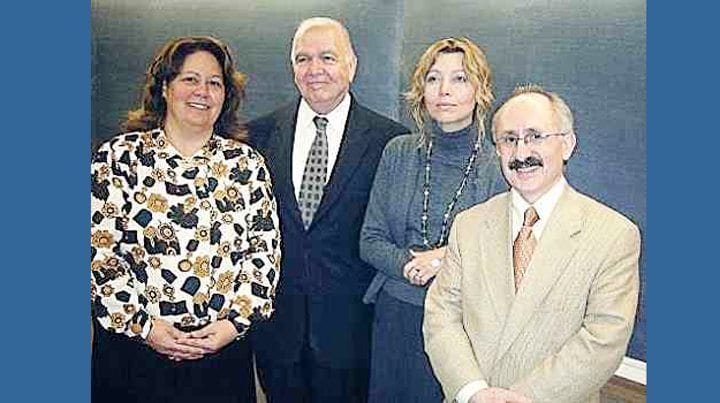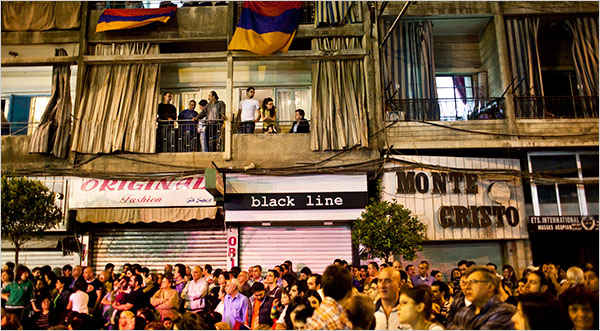(Part 2)
Last week, I described Azerbaijan’s distortions of two of the four UN Security Council Resolutions adopted in 1993. I will now present the remaining two Resolutions:
Excerpts from UN Security Council Resolution 874, adopted October 14, 1993:
“Calls upon the parties concerned to make effective and permanent the cease-fire established as a result of the direct contacts undertaken with the assistance of the Government of the Russian Federation in support of the CSCE Minsk Group.”
“Expresses the conviction that all other pending questions arising from the conflict… should be settled expeditiously through peaceful negotiations in the context of the CSCE Minsk process.”
“Calls for the immediate implementation of the reciprocal and urgent steps provided for in the CSCE Minsk Group’s “Adjusted timetable”, including the withdrawal of forces from recently occupied territories and the removal of all obstacles to communications and transportation.”
“Calls on all parties to refrain from all violations of international humanitarian law and renews its call in resolutions 822 (1993) and 853 (1993) for unimpeded access for international humanitarian relief efforts in all areas affected by the conflict.”
“Urges all States in the region to refrain from any hostile acts and from any interference or intervention which would lead to the widening of the conflict and undermine peace and security in the region.”
Azerbaijan has violated every one of the above clauses. In addition to the frequent violations of the mandated cease-fire, the Azerbaijani forces attacked Artsakh in April 2016, causing major damage to border towns and killing civilians. By cutting off the ears of elderly Armenian villagers and decapitating several Armenian soldiers, Azerbaijan’s armed forces committed a barbaric act and a war crime!
Excerpt from UN Security Council Resolution 884, adopted November 12, 1993:
“Calls upon the Government of Armenia to use its influence to achieve compliance by the Armenians of the Nagorny Karabakh region of the Azerbaijani Republic with Resolutions 822 (1993), 853 (1993) and 874 (1993), and to ensure that the forces involved are not provided with the means to extend their military campaign further.”
Armenian officials usually neither respond to the Azeri accusations regarding the UN Security Council Resolutions nor try to set the record straight. The only exception was Pres. Serzh Sargsyan’s comprehensive speech at the U.N. General Assembly on Sept. 24, 2014.
Pres. Sargsyan stated: “While discussing the Nagorno Karabakh conflict settlement I cannot but address the four UN Security Council Resolutions, which were adopted during the war, that every so often are being exploited by the Azerbaijani authorities in order to justify their obstructive policy.”
“It is about those four Resolutions that demanded unconditionally as a matter of priority cessation of all military hostilities. Azerbaijan failed to comply. Azerbaijan’s own noncompliance with the fundamental demands of these Resolutions made impossible their full implementation. The Resolutions contained calls upon the parties to cease bombardments and air strikes targeting the peaceful civilian population, to refrain from violating the principles of the international humanitarian law but instead Azerbaijan continued its indiscriminate bombardments of the civilian population. Azerbaijan did not spare children, women and old persons thus gravely violating all legal and moral norms of the international humanitarian law.”
“Now Azerbaijan cynically refers to these Resolutions — refers selectively, pulling them out of context as a prerequisite for the settlement of the problem. The adequate interpretation of the UN Security Council Resolutions is not possible without correct understanding of the hierarchy of the demands set therein.”
“The Resolutions inter alia request the restoration of economic, transport and energy links in the region (UN SC Resolution 853) and removal of all obstacles to communications and transportation (UN SC Resolution 874). It is no secret that Azerbaijan and Turkey imposed blockade on Nagorno Karabakh and the Republic of Armenia from the outset of the conflict. The Azerbaijani President in his statements even takes pride in this fact promising his own public that direction would remain the priority of Azerbaijan’s foreign policy.”
“The above mentioned UN Security Council Resolutions called upon Azerbaijan to establish direct contacts with Nagorno Karabakh. Azerbaijan refused to establish any direct contacts with Nagorno Karabakh, which was a legally equal party to the Cease-fire Agreement concluded in 1994 as well as a number of other international Agreements; moreover, Azerbaijan preaches hatred towards people it claims it wants to see as a part of their State.”
“None of the UN Security Council Resolutions identifies Armenia as a conflicting party. Our country is called upon only ‘to continue to exert its influence’ over the Nagorno Karabakh Armenians (UNSC Resolutions 853, 884) in order to cease the conflict. Armenia has fully complied, and due to its efforts a Cease-fire Agreement was concluded in 1994. All UN Security Council Resolutions recognize Nagorno Karabakh as a party to the conflict.”
“Azerbaijani authorities have failed to implement the fundamental demands of the Security Council Resolutions, including abiding and sticking by the humanitarian norms.”
“Incidentally, Azerbaijan has been gravely violating this demand every now and then. Azerbaijan’s cruel and inhumane treatment of the Armenian civilian prisoners of war regularly results in their deaths. Although, I think, one shall not be surprised about it because it is the same State that suppresses and exercises the most inhumane treatment of its own people. A clear proof of it was the decision of the UN Subcommittee on Prevention of Torture to suspend its visit to Azerbaijan due to obstructions it encountered in the conduct of official Baku.”
“The Co-Chairmanship of the OSCE Minsk Group is the only specialized structure that has been dealing with the Nagorno Karabakh issue according to the mandate granted by the international community. While Azerbaijan is very well aware that it could not possibly deceive or misinform the Minsk Group, which is very-well immersed in the essence of the problem, it attempts to transpose the conflict settlement to other platforms trying to depict it as a territorial dispute or exploiting the factor of religious solidarity. That is ironic, since Armenia traditionally enjoys very warm relations with the Islamic nations both in the Arabic world or, for instance, with our immediate neighbor Iran.”
I would like to summarize my key points regarding Azerbaijan’s distortions of the four UN Security Resolutions:
1) The UN Security Council Resolutions were adopted in 1993 during the height of the war between Artsakh/Armenia and Azerbaijan. These Resolutions reflect the conditions on the ground at the time. Since then, the situation has dramatically changed.
2) Despite the cease-fire that was signed in 1994 between Armenia, Artsakh and Azerbaijan, the latter keeps violating both the ceasefire and the UN Security Council Resolutions by its frequent attacks on both Artsakh and Armenia.
3) Azerbaijan opposes Artsakh’s participation in the negotiations, thus violating the UN Security Council Resolutions.
4) The Minsk Group co-chairs, composed of the United States, France, and Russia, are the official mediators of the Artsakh conflict, not the UN Security Council and not the UN General Assembly.
5) In fact, when Azerbaijan brought the Artsakh issue to the UN General Assembly in 2008, all three Minsk Group co-chairs voted against it. Azerbaijan’s proposal was adopted by a small number of States. The overwhelming majority abstained.
6) By blockading Artsakh, Azerbaijan is violating the four UN Security Council Resolutions.
7) Importantly, Armenia is mentioned in the UN Security Council Resolutions, not as a party to the conflict, but only as an intermediary to persuade Artsakh Armenians to comply with these Resolutions. Azerbaijan’s President Heydar Aliyev acknowledged this fact during his speech to the Parliament on February 23, 2001: “Four resolutions have been adopted in the United Nations Security Council…. It is written in these four resolutions that the occupational army should leave occupied lands of Azerbaijan. But there is not a word “Armenia”, that is, there are no words “the Armenian armed forces”. But in one of resolutions it is written to demand from Armenia to exert influence on Mountainous Garabagh (Nagorno-Karabakh). In reality, it is an Armenian-Azerbaijan war. In reality, Armenia has made aggression against Azerbaijan. However, nobody recognizes Armenia as an aggressor in a document of any international organization….”
Azeris who continue to distort the four UN Security Council Resolutions should follow former President Heydar Aliyev’s statement and refrain from accusing Armenia of violating these Resolutions when in fact Azerbaijan is the one not complying with them.







Comments are welcomed and encouraged. Though you are fully responsible for the content you post, comments that include profanity, personal attacks or other inappropriate material will not be permitted. Asbarez reserves the right to block users who violate any of our posting standards and policies.